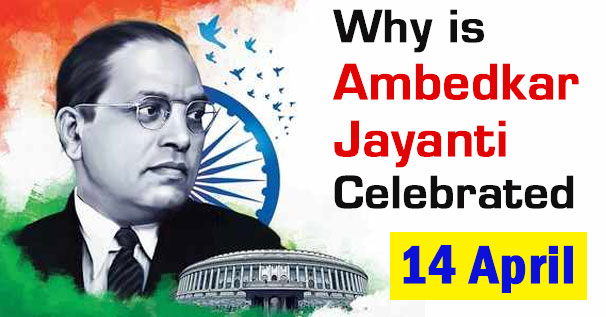Dr. Bhimrao Ramji Ambedkar, popularly known as Babasaheb Ambedkar, was a social reformer, economist, and political leader who played a significant role in the Indian freedom struggle and the drafting of the Indian Constitution. He was born into a family of untouchables, who were considered to be at the bottom of the Indian caste system, on April 14th, 1891, in Mhow, a small town in present-day Madhya Pradesh. Despite facing discrimination and oppression, he was able to obtain an education and went on to become one of the most influential figures in Indian history.
Ambedkar's contribution to the Indian freedom struggle was immense. He founded the Independent Labour Party in 1936, which later merged with the Congress Party. He also participated in the Round Table Conferences in London, where he argued for the rights of Dalits and other marginalized communities. He was the first Law Minister of independent India and played a pivotal role in drafting the Indian Constitution, which is considered to be one of the most progressive constitutions in the world.
Ambedkar was a strong advocate for the rights of Dalits and worked tirelessly toward the abolition of the caste system. He believed that education was the key to social upliftment and was instrumental in setting up a number of institutions, including the Dr. Ambedkar Memorial Library and Reading Room in Mumbai, which provides free education to Dalits.
Ambedkar's contributions to Indian society have been immense and his legacy continues to inspire people to fight against inequality and injustice. He is a symbol of hope and inspiration for millions of people who continue to face discrimination and oppression. Ambedkar Jayanti is celebrated every year on April 14th to honor his contributions to the nation and to promote his ideals of equality, justice, and liberty.
Dr. B. R. Ambedkar: Key Facts
| Full Name | Bhimrao Ramji Ambedkar |
| Born | 14 April 1891 |
| Place of Birth | Mhow, India |
| Died | 6 December 1956 |
| Place of Death | New Delhi, India |
| Resting place | Chaitya Bhoomi, Mumbai, India |
| Parents | Father: Ramji Maloji Sakpal; Mother: Bhimabai Sakpal |
| Spouse(s) | Ramabai Ambedkar (m. 1906; died 1935) Savita Ambedkar (m. 1948) |
| Political party | Independent Labour Party Scheduled Castes Federation |
| Other political affiliations | Republican Party of India |
| Alma mater | University of Mumbai (B.A., M.A.) Columbia University (M.A., Ph.D.) London School of Economics (M.Sc., D.Sc.) Gray's Inn (Barrister-at-Law) |
| Profession | Jurist, economist, academic, politician, social reformer, and writer |
| Awards | Bharat Ratna (posthumously in 1990) |
| Known for our Famous for | Dalit rights movement Heading committee drafting Constitution of India Dalit Buddhist movement |
Why is Ambedkar Jayanti Celebrated?
Ambedkar Jayanti is celebrated to commemorate the birth anniversary of Dr. Bhimrao Ramji Ambedkar, who was born on April 14th, 1891. Dr. Ambedkar was a social reformer, economist, and political leader who played a significant role in the Indian freedom struggle and the drafting of the Indian Constitution.
Dr. Ambedkar was born into a family of untouchables, who were considered to be at the bottom of the Indian caste system. Despite facing discrimination and oppression, he was able to obtain an education and went on to become one of the most influential figures in Indian history. He fought tirelessly for the rights of marginalized communities, including Dalits, and worked towards the abolition of the caste system.
As the chairman of the Constitution Drafting Committee, Dr. Ambedkar played a pivotal role in drafting the Indian Constitution, which is considered to be one of the most progressive constitutions in the world. He was also the first Law Minister of independent India.
Ambedkar Jayanti is celebrated to honor his contributions to the nation and to promote his ideals of equality, justice, and liberty. The day is marked by various events, including speeches, cultural programs, and seminars, that celebrate his legacy and inspire people to continue working towards a more just and equitable society.








0 Comments